Instead, there are brief announcements: "No flowers accepted, please donate to flood victims." This is not just an administrative decision but a sign of a deeper change when natural disasters force us to reconsider how to show gratitude on Teachers' Day, when circumstances reshape values.

Teachers and students of schools in Da Nang City donate school supplies to students in the flood-prone areas of Da Nang.
Photo: Ngoc Han
Redefining the meaning of gratitude
The year 2025 has not yet ended but has already become one of the most severe natural disaster years in recent history. As of early November, 19 tropical cyclones have appeared in the East Sea, including 14 storms and 5 tropical depressions. This is significantly higher than the average of many years, which is only about 12-13 storms. The whole country has recorded 20 types of natural disasters with frequent, fierce developments, and many unusual factors. The storm pattern has also been disrupted when the first storm of the season hits the Central region, while the last storm of the season goes straight to the North, something that has rarely been seen in decades.
It is not just a statistical number, it is the real pain of millions of people. According to Deputy Minister of Agriculture and Environment Nguyen Hoang Hiep, there are types of natural disasters that exceed the tolerance of a group of people, especially the vulnerable. In this context, the decision of schools not to accept flowers on the occasion of Vietnamese Teachers' Day, November 20, becomes more meaningful than ever.
The Ho Chi Minh City Department of Education and Training issued a document requesting units not to organize receptions, not to accept flowers or gifts on the occasion of November 20. Responding to this policy, Ho Chi Minh City University of Education, Saigon University, Pham Ngoc Thach University of Medicine and many high schools in Ho Chi Minh City have announced that they will not accept flowers or invite guests, and called for the transfer of gratitude funds to support students and teachers in flood-affected areas. Schools in other provinces and cities such as Da Nang and Dong Nai also have a policy of not accepting flowers on Teachers' Day but instead turning them into actions to show gratitude to teachers and students in flood-affected areas.
But this is not a rejection of the tradition of gratitude. On the contrary, it is a way of expressing gratitude at a higher level. When the Pedagogical University calls for the conversion of flower and gift funds into contributions to Red Scarf Houses for poor students, or mobile swimming pools to teach drowning prevention skills, the school is redefining the meaning of gratitude. It is not only personal feelings for teachers but also responsibility to the community, which is what teachers always teach.
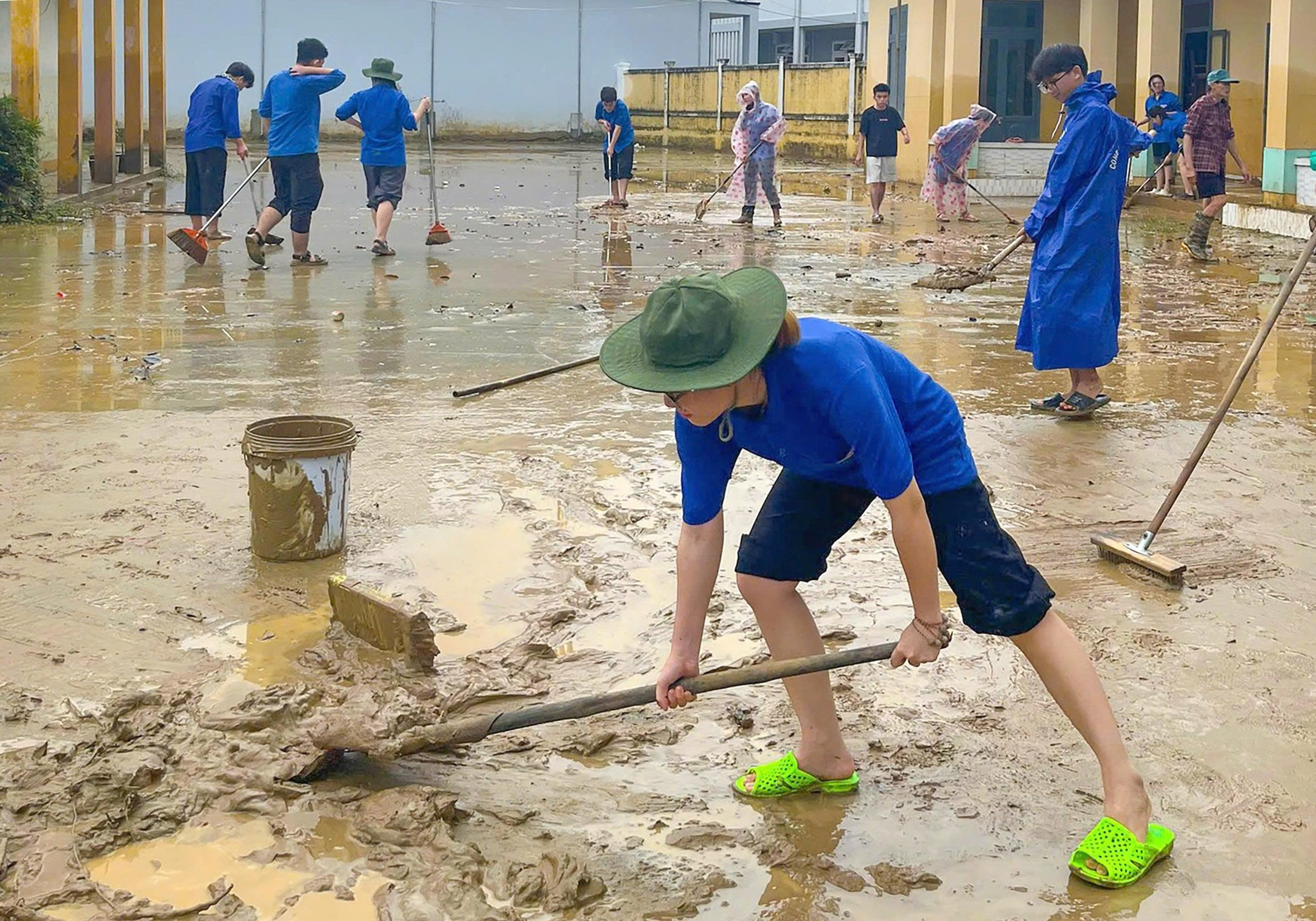
Volunteers are present at flooded schools in Da Nang City to clean up mud.
Photo: Huy Dat
What is interesting to note is that this shift reflects a subtle awareness of the situation. At a time when many are losing their homes and loved ones, maintaining lavish rituals can seem out of touch with reality. It is not that we do not appreciate our teachers, but rather that, because we appreciate our teachers, who taught us compassion, we need to show it by sharing with those less fortunate.
When students join hands with teachers to support flood victims, it is also a way to express gratitude. It is not about abandoning the ritual but about elevating the meaning of the ritual to a higher level from the individual to the community, from form to value. However, it is important that we do not turn not accepting flowers into a rigid rule or a temporary movement. Each year, each situation may require different responses. In more peaceful years, when farmers have a stable life, buying flowers to show gratitude to teachers is still a beautiful and meaningful thing.
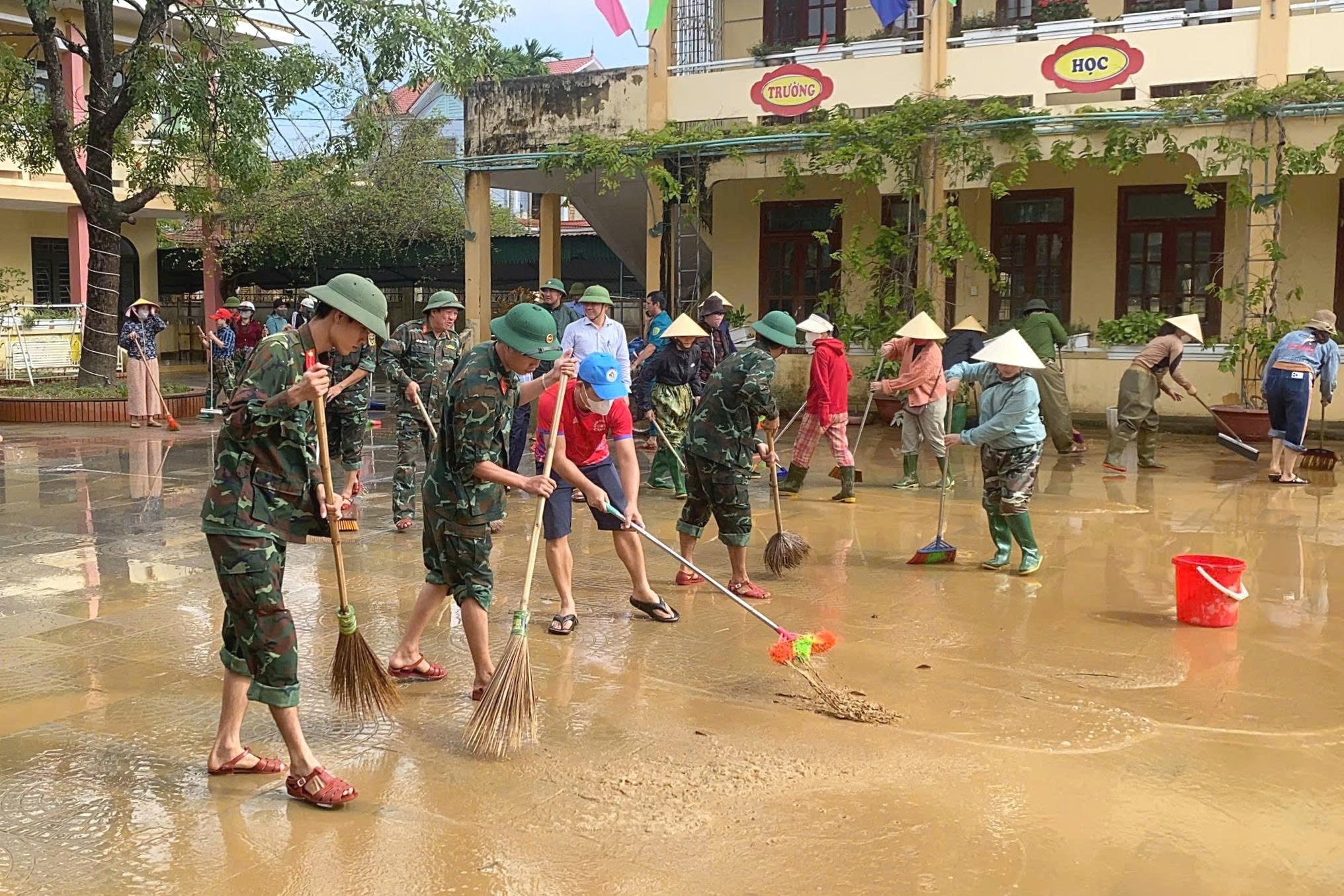
Military and shock troops, along with teachers in Quang Tri, cleaned up classrooms to welcome students after the flood.
Photo: Thanh Loc
Another shade of "no flowers"
The picture of gratitude cannot be just one color. Behind these noble decisions is a little-mentioned reality. Flower growers are also suffering the consequences of natural disasters. In 2023, the Vietnamese flower industry reached a value of 45,000 billion VND with a planting area of about 36,000 hectares. Vietnamese Teachers' Day, November 20, is one of the most important occasions for flower consumption in the year. But this year, flower growers face a double challenge. On the one hand, many flower gardens were damaged by storms, and on the other hand, the demand for flowers has decreased sharply due to the policy of not accepting flowers.
Humanitarian policies towards flood victims have unintentionally created more pressure on another group of workers who are also affected by natural disasters.
However, the problem is not whether the decision is right or wrong, but whether we see all the layers of the problem. Flower growers are not people who profit from the holiday, they are real farmers, also have families, also have children going to school. When we talk about empathy for the people in the flood area, do we need to sympathize more with those who are losing their consumer market?
What we need is a more balanced approach. We can support flower growers to convert part of their products to community projects. We can connect schools and flower growers to participate in charity activities, both to maintain farmers' livelihoods and to give back to the community. We can encourage the purchase of flowers from areas less affected by natural disasters to both show gratitude to teachers and support the rural economy. More importantly, we need to remember that good policies are not perfect policies for everyone, but policies that try to minimize losses and maximize benefits for the majority. At the same time, there are support solutions for those who are negatively affected.
This year’s circumstances have changed the way we show our gratitude to our teachers on Vietnamese Teachers’ Day, November 20. But perhaps this change does not diminish the meaning of the holiday, but rather makes its core values clearer. That is, gratitude is not measured by flowers or gifts, but by the heart and actions. And more importantly, the ability to see and understand widely enough so that no one is left behind.
Lessons teachers teach students: adaptability, empathy and team spirit
The year 2025 will be remembered not only for the record number of natural disasters, but also for how we respond to them. When natural disasters exceed human endurance, they force us to rethink what is truly important. On Vietnam Teachers’ Day, November 20, the biggest lesson that teachers are teaching students and society that is not found in textbooks is adaptability, empathy and solidarity. It is knowing how to look beyond yourself to see the difficulties of others. It is having the courage to change when necessary, no matter how familiar the tradition.
But let’s not forget that in every noble decision, there are always people who have to suffer the consequences. True empathy is when we see all the people affected, not only the people in the flood areas but also the flower growers, flower traders, and those whose livelihoods are tied to the holidays.
Source: https://thanhnien.vn/bao-lu-thay-doi-cach-tri-an-ngay-nha-giao-18525111716443378.htm







![[Photo] General Secretary To Lam and National Assembly Chairman Tran Thanh Man attend the 80th Anniversary of the Traditional Day of the Vietnamese Inspection Sector](https://vphoto.vietnam.vn/thumb/1200x675/vietnam/resource/IMAGE/2025/11/17/1763356362984_a2-bnd-7940-3561-jpg.webp)
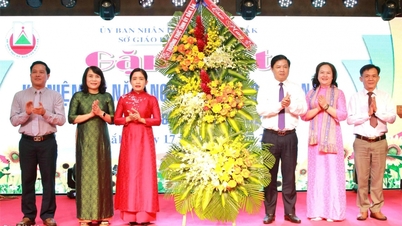

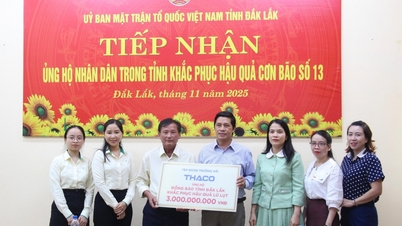

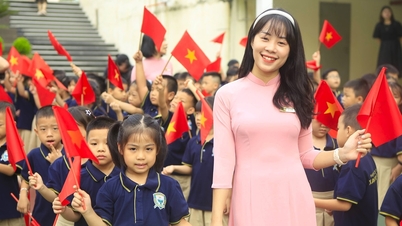

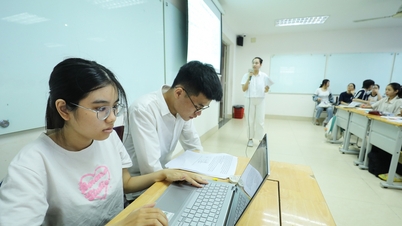








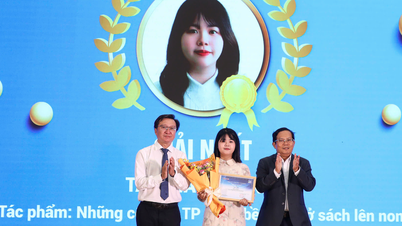





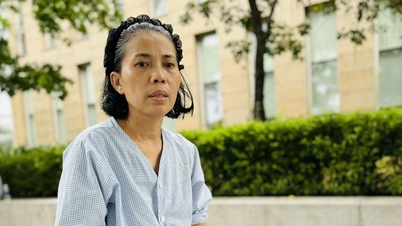

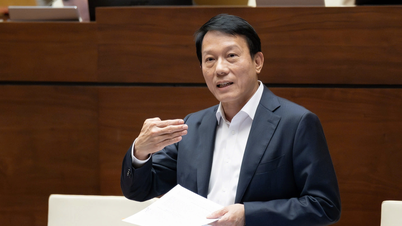
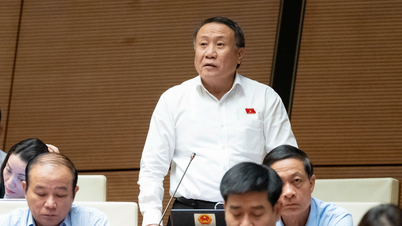
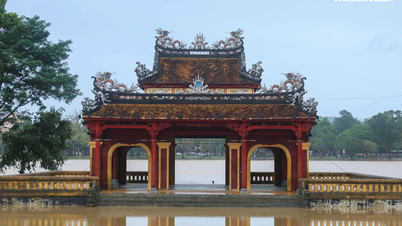






















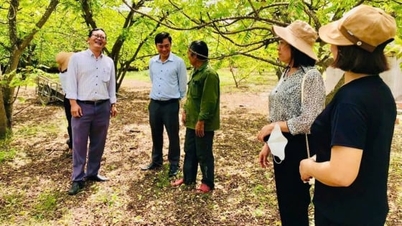































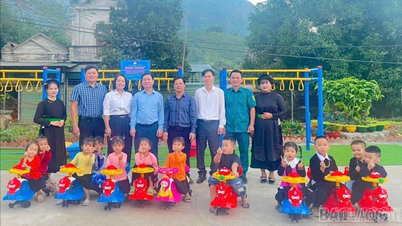

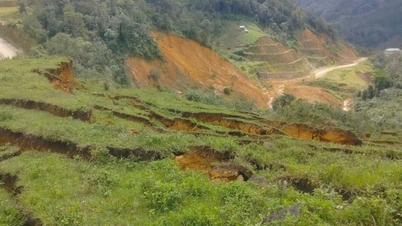


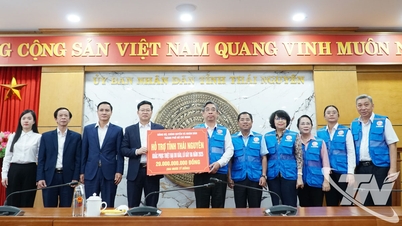











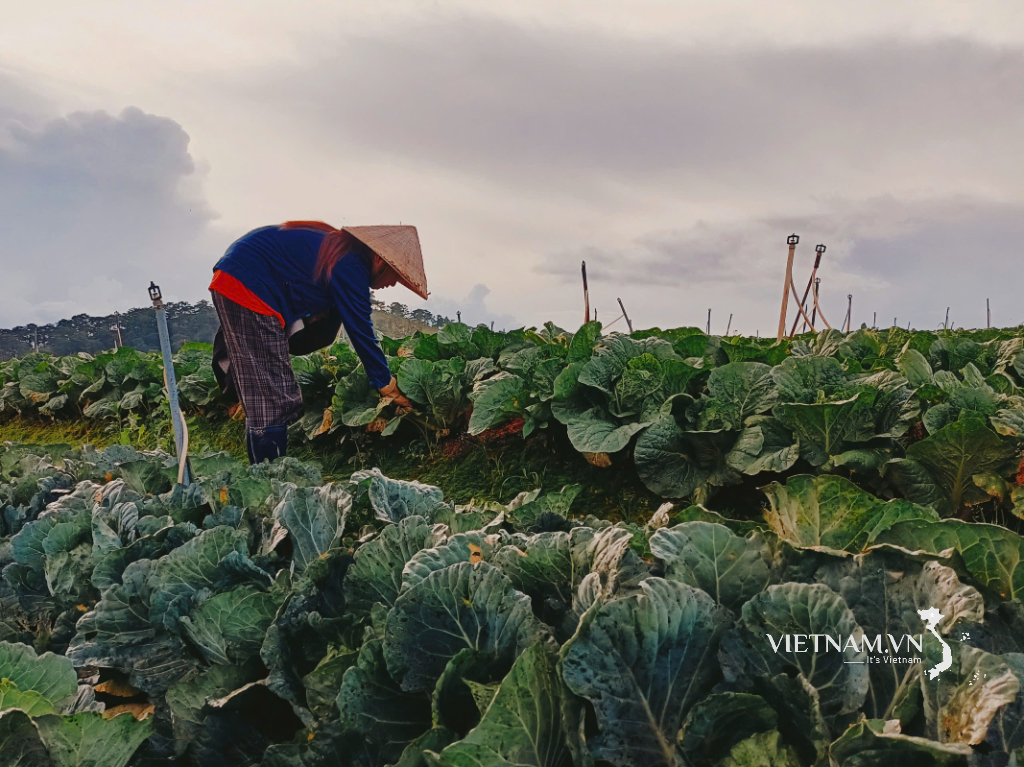


Comment (0)